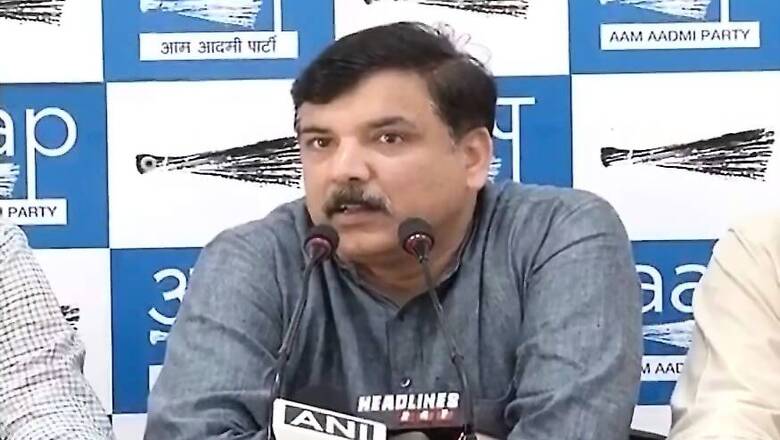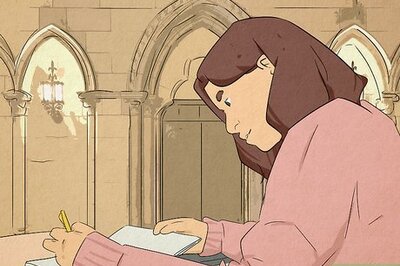
views
Noida (UP): The Centre can end the anti-CAA protest at Delhi's Shaheen Bagh but it is keeping the issue alive to avoid discussion on pressing issues like unemployment and economic slowdown, AAP leader Sanjay Singh claimed on Monday.
He said the responsibility to end the logjam lies with the Centre and not the AAP-led Delhi government.
Singh's remarks came on a day the Supreme Court said the blockade of a public road at Shaheen Bagh is "troubling us" and suggested that the protesters go to another site where no public place would be blocked.
"If the central government wants, the passage along Shaheen Bagh can be certainly opened. The protest against the CAA is not directed at the Delhi government. It is against the central government. So we cannot do anything on behalf of the central government, it is for the Centre to address it," the Aam Aadmi Party (AAP) leader told reporters here.
"If there is any protest or demonstration related to electricity, healthcare, water, education, etc in Delhi, then we are responsible for it. We will talk and resolve those issues," he said.
"Today, the BJP wants to keep this issue alive because banks in India have NPAs (non-performing assets) of Rs 10.50 lakh crore, unemployment has risen to a 45-year high, inflation peaked to the level that onions were sold at Rs 250 per kg and tomatoes at Rs 120 per kg...yet there is no discussion on any of these issues. There is discussion only about Shaheen Bagh," he added.
On Sunday, Singh noted, the protesters had planned a march to Union Home Minister Amit Shah's residence to have a dialogue with him but were not granted permission for it.
The Rajya Sabha MP said his party raised the issue of the Citizenship (Amendment) Act (CAA) in Parliament and opposed the law, which, he said, is "against the ethos" of the Constitution framed by B R Ambedkar.
"If the Centre talks to us and the Delhi government has any role to play in the issue, we will do it," he said.
Besides Shaheen Bagh, protests were held in Zakir Nagar, Khureji Khas and other places in the national capital and elsewhere across the country in December last year to oppose the CAA and the National Register of Citizens (NRC).
Restrictions have been imposed on the Kalindi Kunj-Shaheen Bagh stretch and the Okhla underpass, which have remained closed since December 15 last year due to the protest, affecting traffic movement in the area.
According to the CAA, members of Hindu, Sikh, Buddhist, Jain, Parsi and Christian communities who came from Pakistan, Bangladesh and Afghanistan till December 31, 2014, to escape religious persecution there will not be treated as illegal immigrants but given Indian citizenship. The law excludes Muslims.
Those opposing the law contend that it discriminates on the basis of religion and violates the Constitution. They also allege that the CAA along with the NRC is intended to target the Muslim community in India.
However, the central government has dismissed the allegations, maintaining that the law is intended to give citizenship to the persecuted people from the three neighbouring countries and not to take away citizenship from anyone.




















Comments
0 comment